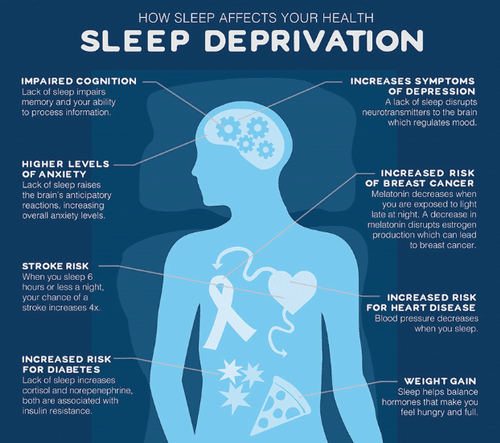
Study Uncovers Alarming Connection: Sleep Deprivation and Alzheimer’s RiskStudy Uncovers Alarming Connection: Sleep Deprivation and Alzheimer’s Risk A groundbreaking study has revealed a startling link between sleep deprivation and an elevated risk of Alzheimer’s disease, a neurodegenerative condition that affects memory and cognition. The research, published in the esteemed journal “Nature Medicine,” sheds new light on the vital role sleep plays in safeguarding brain health. The study, conducted by a team of researchers from the University of California, San Francisco, involved analyzing data from over 1,000 individuals over the age of 50. Participants underwent extensive sleep assessments, including overnight polysomnography, which measures brain activity, heart rate, and breathing during sleep. The results were both compelling and concerning. Individuals who consistently experienced sleep deprivation, defined as an average of less than six hours of sleep per night, were found to have significantly higher levels of amyloid-beta plaques in their brains. Amyloid-beta plaques are hallmark indicators of Alzheimer’s disease. Moreover, the study revealed that each additional hour of sleep deprivation was associated with a 5% increase in the risk of developing Alzheimer’s. This suggests that even moderate levels of sleep loss may have a cumulative effect on brain health and increase susceptibility to this devastating disease. The mechanisms underlying the connection between sleep deprivation and Alzheimer’s risk are still being investigated. However, researchers propose that inadequate sleep disrupts normal brain function, leading to an accumulation of toxic substances, including amyloid-beta plaques. Additionally, sleep deprivation may impair the brain’s ability to clear waste products, further contributing to neurodegeneration. “Our findings highlight the profound impact that sleep has on brain health and the potential consequences of sleep deprivation,” said Dr. Matthew Walker, the study’s lead author. “By prioritizing sufficient sleep, we may be able to reduce our risk of Alzheimer’s and maintain cognitive function as we age.” The study emphasizes the importance of obtaining quality sleep throughout life, especially for older adults who are at an increased risk of sleep disturbances and Alzheimer’s disease. Simple lifestyle modifications, such as establishing regular sleep-wake cycles, creating a conducive sleep environment, and avoiding caffeine and alcohol before bedtime, can significantly improve sleep quality and duration. As the population ages and the prevalence of Alzheimer’s rises, this research underscores the urgent need for interventions that promote healthy sleep and mitigate the risk of this debilitating disease.
Posted inNews